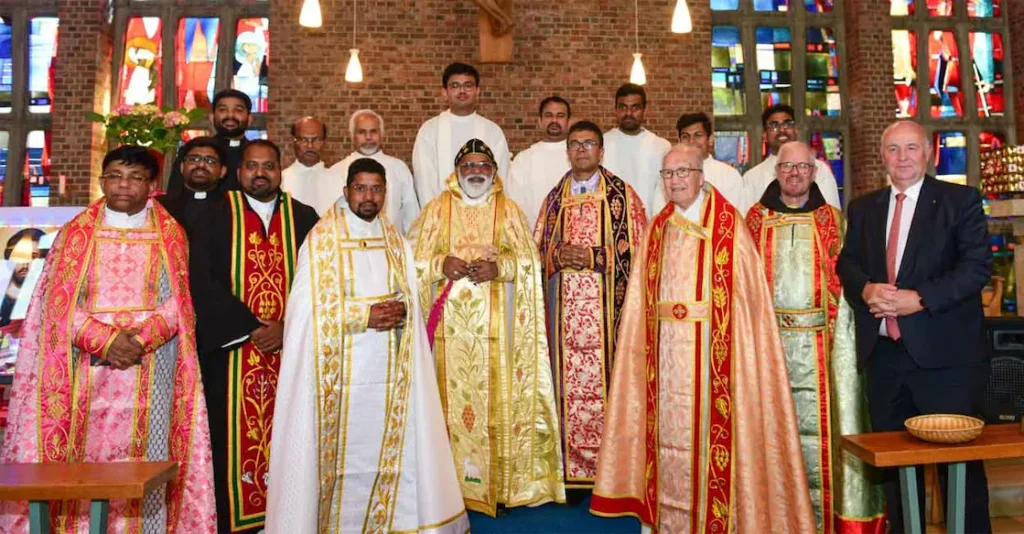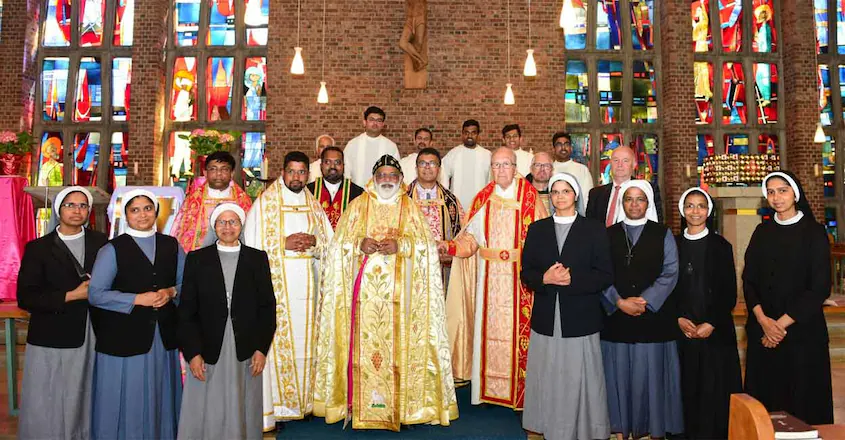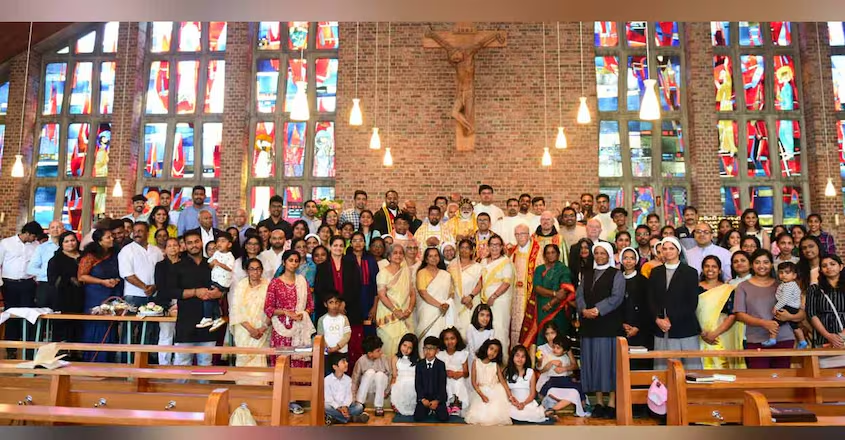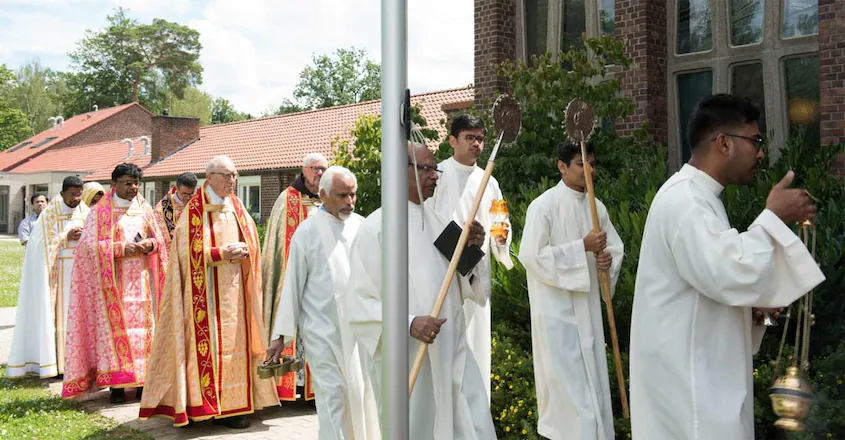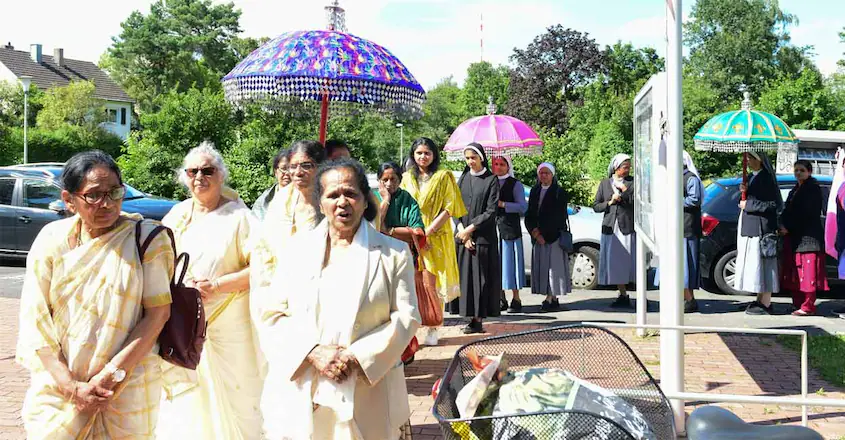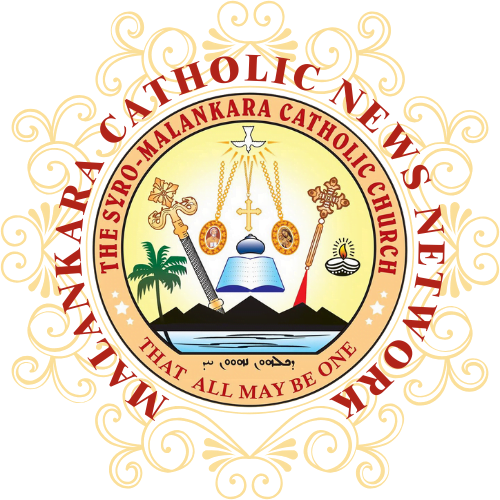Bonn – The Malankara Syrian Catholic community in Bonn celebrated the Mar Thoma Sleeha Feast with great devotion and enthusiasm at the St. Thomas Community, Heilig-Geist Church, Bonn.
Historical Significance and Community Background
The origins of the Malankara Syrian Catholic community in Germany trace back to the early 1960s when the Eucharistic Congress in Munich became a pivotal event. With visionary support from German bishops, efforts were made to ensure medical and caregiving services for the aging generation. This led to the arrival of young women from India, facilitated by Archbishop Benedict Mar Gregorios and Bishop Zachariah Mar Athanasios. In 1963, Syro-Malankara priests arrived in Königstein/Taunus near Frankfurt, marking the beginning of the Syro-Malankara Catholic presence in Germany. Over the years, nuns and priests also made their way to Germany, contributing significantly to the community’s growth.
Celebrations in Bonn
The celebrations commenced on Saturday, July 6, at 5 PM with the flag hoisting ceremony and evening prayers. The main event took place on Sunday, July 7, with a grand reception for His Excellency Most Rev. Dr. Geevarghese Mar Makarios, Bishop of Puthur Eparchy, followed by the Holy Qurbono (Holy Mass) and a procession (Rasa). The event also included the annual gatherings of various devotional organizations, culminating in a feast (Sneha Virunnu).
The ceremonies were led by Vicar Fr. Dr. Joseph Chelamparambath and committee members, ensuring a spiritually enriching experience for all attendees.
Malankara Syrian Catholic Life in Germany
The community in Germany celebrated 50 years of Malankara Syrian Catholic life in 2014, emphasizing the strong ties between the Malankara and German churches since the Second Vatican Council. Archbishop Mar Gregorios and Bishop Mar Athanasios established close relationships with members of the German episcopate and priests studying in Rome, leading to a significant milestone with Mar Gregorios’s participation in the Eucharistic World Congress in Munich in 1960. This event paved the way for sending theological students to Königstein and bringing young women for nursing training to various parts of Germany.
The first groups faced considerable challenges, including homesickness, language barriers, and cultural integration. However, social and pastoral care was provided from the beginning, with visits from Indian bishops and priests offering spiritual support. The establishment of centres in Bonn/Köln, Frankfurt/Mainz, Heidelberg/Stuttgart, Herne/Dortmund, and Krefeld/Düsseldorf ensured that the community remained closely knit, celebrating liturgies and sacraments in their Eastern tradition.
Current Scenario
Today, the Syro-Malankara Catholic community in Germany is well-integrated, with around 300 families spread across five main centres. The community continues to thrive with regular monthly services and special celebrations, reflecting their rich heritage and strong faith. The support from the German Bishops’ Conference and local parishes has been instrumental in maintaining the spiritual and cultural identity of the Malankara Syrian Catholics in Germany.
The Mar Thoma Sleeha Feast in Bonn stands as a witness to the enduring faith and vibrant community life of the Malankara Syrian Catholics in Germany, celebrating their heritage while contributing meaningfully to the broader Catholic Church.
